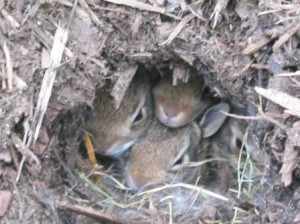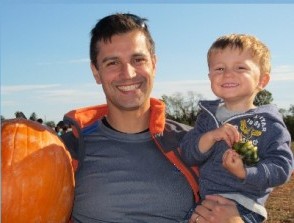In spring and early summer, folks often encounter young animals such as fawns (baby deer), rabbits, birds and other species. The baby might appear sick, injured or all alone and orphaned by their mother. That’s when human instinct kicks in, and we want to “help” the animal. Often that is the last thing we need to do.
The New Jersey Division of Fish & Wildlife (NJDFW) urges residents of New Jersey to leave young wildlife undisturbed. They advise that the lives of many young animals are disrupted by well-intentioned people who attempt to “save” these animals, when more often than not, the mother is nearby and the young animal is not in immediate danger.
When you do encounter a young animal, please do not try to take it home, care for it yourself, or worse yet, try to turn it into a house pet. The reality is that the animal is being denied its natural learning experience to grow and develop into an adult. What’s more, nearly all wild animals are protected by law, and it is illegal to try to keep them as a pet.
Following is a list of common wildlife and suggestions on what to do if you encounter them:
Young rabbits:
It is best to leave a rabbit’s nest undisturbed. The mother is usually close by but will not go near her nest while humans are around. Young rabbits are ready to leave the nest at three to four weeks of age when their eyes are open and their bodies are furry. Rabbits are fragile animals and easy prey. Many have short life spans, and they can actually die of fright. Human interaction usually does more harm than good.

Baby rabbits in their nest
Young birds:
The NJDFW reminds us that every bird alive today has spent a few precarious days on the ground while learning to fly. If you find a baby bird on the ground, you can either replace it in the nest or leave it on the ground and let Mother Nature run its course.
Young fawn:
If you find a young fawn lying alone, please leave it alone. The mother has left it behind intentionally in an area she deems safe, and she returns several times each day to nurse the fawn. The NJDFW advises that if you’ve already moved the fawn, you must take it back where you found it to ensure it will be reunited with its mother.
If you find injured wildlife with its deceased mother:
The NJDFW advises those who encounter such a situation should consult the List of New Jersey Wildlife Rehabilitators for the nearest wildlife rehabilitation center.
Joe Martins, DVM, Belle Mead Animal Hospital



